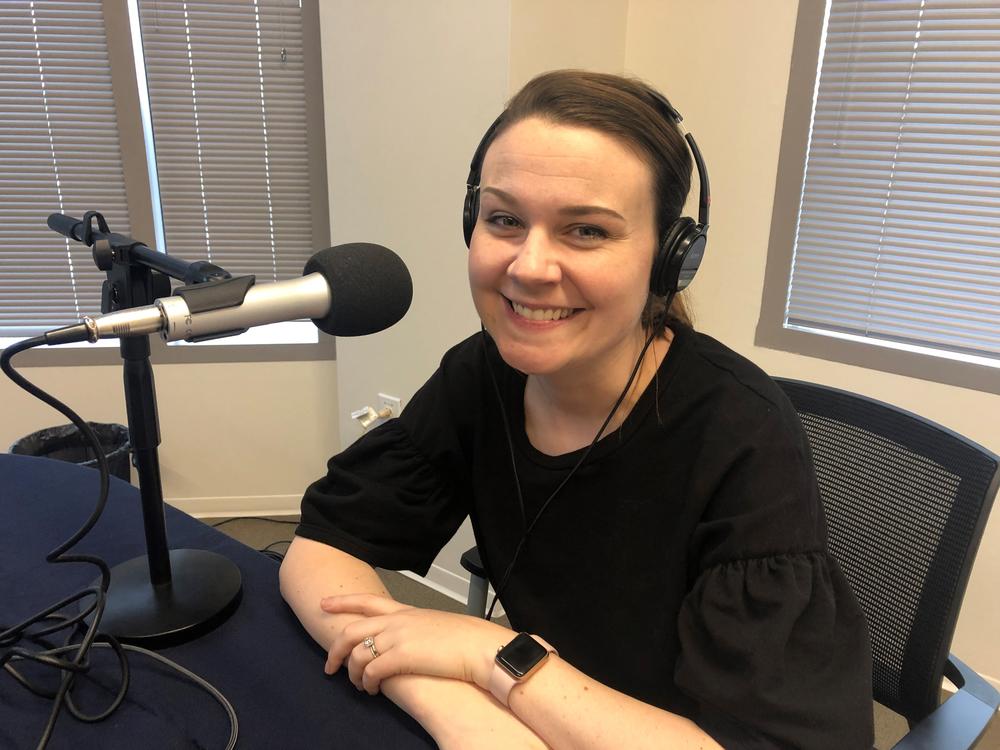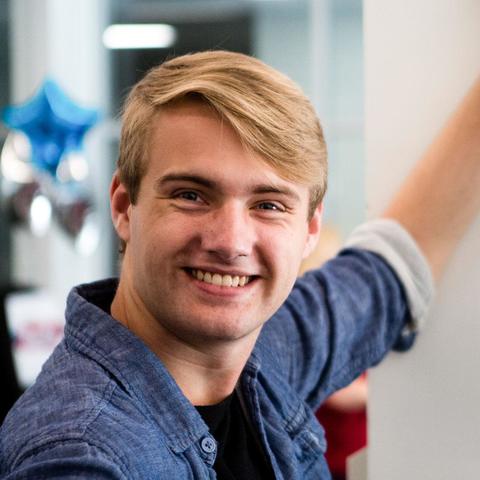Section Branding
Header Content
CDC Foundation Hosts 'Contagious Conversations' Podcast
Primary Content
The Centers for Disease Control and Prevention in Atlanta may not be top of mind until we hear about an infectious disease outbreak or see images of scientists in hazmat suits in the news. But the work of health leaders and innovators goes on outside of headline-level crises.
The people advocating for public health and the important causes they’re addressing are the focus of a podcast from the CDC Foundation.
Claire Stinson is host of Contagious Conversations and she visited On Second Thought to talk about her work.
Interview Highlights
On the difference between the CDC and the CDC Foundation
The Centers for Disease Control and Prevention is a federal agency that protects America from health threats. The CDC Foundation is an independent nonprofit that was created by Congress to support and extend the lifesaving work of the CDC through public private partnerships.
We really wanted to provide a forum to have some really interesting conversations with health leaders and gain power so our audience could gain perspective on their backstory, their career path, how they became the CEO of the Bill and Melinda Gates Foundation and why their work is so important because they're making the world healthier and safer for us all.
On choosing the issues and people that you feature in the podcast
We really wanted to choose thought-provoking guests. We wanted to interview people that had a really interesting career path, and they really are the health leaders that are really working to make this world a healthier place. So we knew Maryn McKenna well. She's an investigative journalist that covers health topics here in Atlanta. Dr. Lex Frieden is considered the architect of the Americans with Disabilities Act with a truly inspiring backstory. We have the CEO of the Bill and Melinda Gates Foundation, Dr. Sue Desmond-Hellmann. These are really inspiring people and it's been an honor to interview them, honestly.
On the interview with Dr. Rebekah Gee, secretary of the Louisiana Department of Health
She's really proud of this effort (to make the cure for hepatitis C affordable to everyone) in Louisiana. She really wanted to explain why it is so important in her state and, really, for the country. She's done so much to impact the health of Louisianans. She really wants to work with a lot of different people to work on the cost equation. She talks a little bit more about it in the podcast and I would defer to her on that but I do think she has a really inspiring career path and backstory. She has been both a patient and a caregiver, and she really brings both of those roles to everything she does in her work in Louisiana.
On the conversation with Dr. Richard Besser, CEO of the Robert Wood Johnson Foundation, about social justice
Dr. Besser makes a point of talking about the fact that social justice is a really important goal for him. The Robert Wood Johnson Foundation is working to build a culture of health in America. He really gets into that, and he talks about it in his episode that healthy choices are important, but you have to have those choices available to you.
On whether ordinary people without medical degrees can advocate for public health
(The podcast offers) a better understanding of what people are doing in our world to improve public health. Public health is the science of improving and protecting people's lives and health at the community level. And what an inspiring goal for anyone to learn about. So we say at the CDC Foundation that public health connects us all.
I think that Carol Pandak, who heads Rotary International's worldwide effort to eradicate polio, does a good job of explaining how (public health and policy) can impact folks at a community level. She talks about community mobilizers in that episode as well and how impactful they are in their communities. And she does talk about vaccine hesitancy; a lot of people don't understand the impact of what not getting a vaccine can mean until they see the disease really play out. And if they don’t see it, they may not understand it.
On the importance of stories over statistics
I don't always think statistics resonate with people as much as stories resonate. People remember stories, and that's really what we're trying to convey in this podcast — the stories behind these inspiring health leaders and how they came to be the CEO of these large organizations or whatever role they may have or how they're working every day in small and big ways to improve people's health.
Get in touch with us.
Twitter: @OSTTalk
Facebook: OnSecondThought
Email: OnSecondThought@gpb.org
Phone: 404-500-9457





